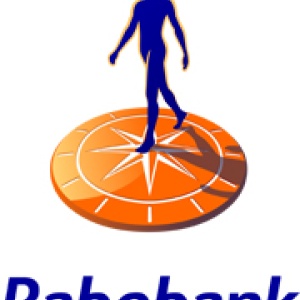
This report by Dutch multinational banking and financial services company, Rabobank, argues for the need for a so-called “smarter food system” – that is, a food system incorporating and harnessing the latest technology at every stage, although they place particular emphasis on production-side measures.
The report begins by emphasising the need for the global food system to change, citing the pressures on it to improve resource efficiency, better meet consumer expectations, improve profitability and improve resilience (although these terms are not well-defined in the report). It identifies the following goals as desirable: increasing food availability, improving access to food, stimulating balanced nutrition and enhancing system stability. The report goes on to highlight that the move towards a smarter food system has already begun, with an upswing in investment in farming, processing and food trading, distribution and logistics. The report finds that investment in food and agriculture was set to surpass US $4 billion by the end of 2015.
Phenomics (the automated phenotyping of beneficial traits in seedlings and adult plants), smart GPS- and field data-based irrigation systems, remote technology such as drones, and sensors in delivery trucks to monitor animal welfare are all given as examples of technologies being developed that Rabobank believe can contribute to bringing about the food system changes they outline. The report emphasises the present and future applications of big data and fresh produce monitoring to connect food system actors, boost productivity and reduce waste.
Rabobank concludes that a smarter food system has the potential to improve global food productivity and identifies three keys to achieving their notion of a smart food system: strengthening supply chains such that stakeholders along the chain become more interconnected and share the risks and rewards equally; financial backing and commercialisation of the new approaches and technologies being developed; and ensuring that consumer views and civil society concerns are taken into account in decision-making processes.
Abstract
Global food & agribusiness (F&A) has much to do: it needs to increase food availability, improve access to food, ensure balanced nutrition and stabilise the global food system. This expansion is further complicated in markets where clear growth signals have given way to the more subtle, but equally powerful trends of urbanisation and modified consumer behaviour.
The recently adopted 2030 Agenda for Sustainable Development sets clear global goals for ending hunger, achieving food security and improved nutrition, and promoting sustainable agriculture. It will require ambitious action across global F&A. Action, in turn, requires investment that is targeted and well managed, so farmers, F&A companies and others that are taking the required measures and associated risks receive acceptable returns on their investments.
Rabobank has great confidence in global F&A; we believe it has the capacity to meet these goals and projected demands. While we foresee production increases in crops, meat and fish, and dairy across all regions—especially in those least constrained by resources and external pressures—we believe the nature of food production and distribution can and should change.
In Rabobank’s view, transition to a smarter food system will provide an opportunity to realise many of the necessary gains.
A smarter food system is more productive, more (globally) integrated, less wasteful and more profitable. It is more efficient in using resources to produce and deliver the food consumers need, where and when they need and want it, making it more sustainable.
A smarter food system combines technology and (big) data, and uses algorithms to change the way decisions are made and the speed with which decisions are taken—in food production, processing and distribution. By greatly improving supply chain connections, it offers scope to lift food production, optimise the use of resources, reduce waste and improve access to food. It should also improve stability in the global food system, encouraging investors along supply chains.
The road ahead will be bumpy, and full of climatic and other challenges. A key issue will be to communicate with society about the meaning and consequences of feeding 9 billion people in a sustainable way in 2050.
At Rabobank, we are excited about the prospects offered by building a smarter food system, and we invite you to join us on a journey to discover what exactly a smarter food system means and what it can offer.
Citation
Food & Agribusiness Research and advisory (2015) Building a smarter food system. Rabobank
Read the full report here.
You can find related resources in the Research Library categories on ICT tools, Decision-making tools, Technology and Economy and the keyword categories: Farm management tools, Biotechnology/GMO, Consumer Perceptions and preferences and Investment












Post a new comment »